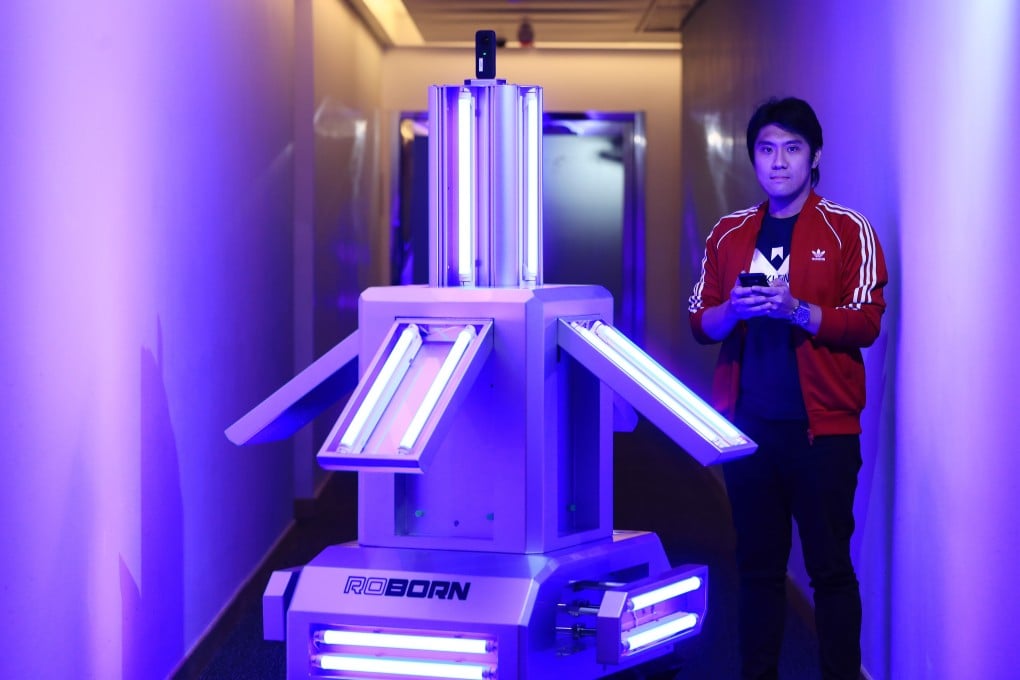Hong Kong start-up Roborn joins race to pioneer UV light disinfecting robots
- Roborn aims to sell its UV light robot at under HK$200,000 each, a third to half of the amount charged by rivals in China and Europe
- Nano and Advanced Materials Institute is testing a coating that can provide up to eight months’ antimicrobial protection when sprayed on plastics, metals, ceramics, glass and wood surfaces

Hong Kong, a global financial centre less known for its robotics expertise, will soon have a local start-up join the international race to make more affordable mobile ultraviolet light disinfecting machines.
Roborn Technology, which started selling a body temperature-checking robot three months ago to help security staff at government offices identify people with elevated temperatures, has put its pilot UV light robot to test in a private medical centre and shopping malls.
“While nearly everyone wears a face mask in public places in Hong Kong, we still have sporadic new community infections, which raise concerns about contaminated surfaces in public facilities,” Mark Mak Hin-yu, Roborn’s co-founder, said in an interview. “Disinfecting with UV light can be a safer, more thorough and lower-cost alternative to manual cleaning with chemicals.”
But unlike their crowd-scanning and temperature-checking peers that greet people at entrances, the disinfecting robots are not to be seen while doing their jobs, because UV-C light is harmful to human skin and eyes. However, UV-C light, which can break down the DNA of microorganisms, is a proven technology for disinfecting air, water and instruments for more than a century, and was being used in hospitals as early as the 1930s.
A 100 square feet space can be disinfected within just a minute of the robot’s deployment, Mak said. Larger spaces need longer exposure time.

02:02
Coronavirus: Hong Kong to ease social-distancing rules as city sees record 8.9% economic slump
In recent years, multidrug resistant organisms and hospital-acquired infections have been a major reason for the advent and deployment of UV-C light tube-carrying robots in patient rooms, bathrooms, operating and equipment rooms.
The global UV-C robots market is estimated to be worth US$173 million last year, and is projected to grow at a compound annual rate of 32.6 per cent to US$5.6 billion by 2027, according to a report by Verified Market Research.